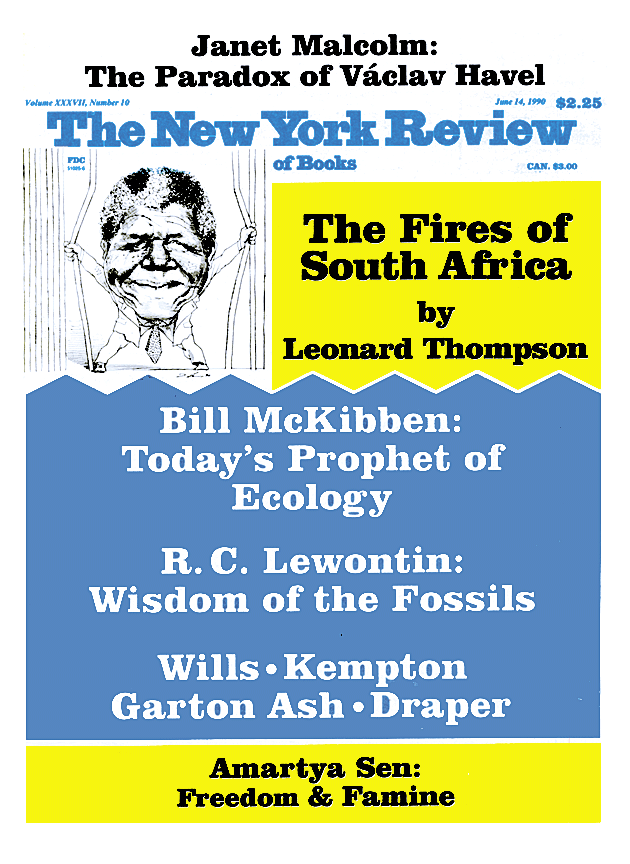In response to:
The Inner Civil War from the March 15, 1990 issue
To the Editors:
C. Vann Woodward only repeats the method of the lectures under review, Lewis Simpson’s Mind and the American Civil War [NYR, March 15], when he arranges excerpts from the public writings of Thomas Jefferson, but from the private writings of Ralph Waldo Emerson, to portray the Virginian as a “distinguished plantation intellectual” who “wrestled with the paradox [of slavery] all his days,” and the New Englander as a “white supremacist” who exemplified “racism, Negrophobia, and continued fears of Africanization.” I hope I am not the only one to wonder about the utility of our moral distinctions if we can decide that Emerson, who abhorred slavery and urged emancipation, was a racist, while Jefferson, who abhorred slavery and enslaved whole families, was not. In 1844, speaking in Concord on the tenth anniversary of emancipation in the British West Indies, Emerson said: “I esteem the occasion of this jubilee to be the proud discovery that the black race can contend with the white; that…they can strike in with effect and take a master’s part in the music.” He added that “the quality of this race is to be honored for itself.” In 1854, speaking to the Anti-Slavery Society in New York, Emerson explained his public support for the abolitionists in words that we might apply as well to our own exercise of the historical imagination: “I wish to see the instructed class here know their own flag, and not fire on their comrades.”
Douglas Crase
New York City
C Vann Woodward replies:
Lewis Simpson presented his thesis better than I have, I’m sure, and certainly more persuasively and fairly than the excerpts quoted above would lead one to believe.
This Issue
June 14, 1990


